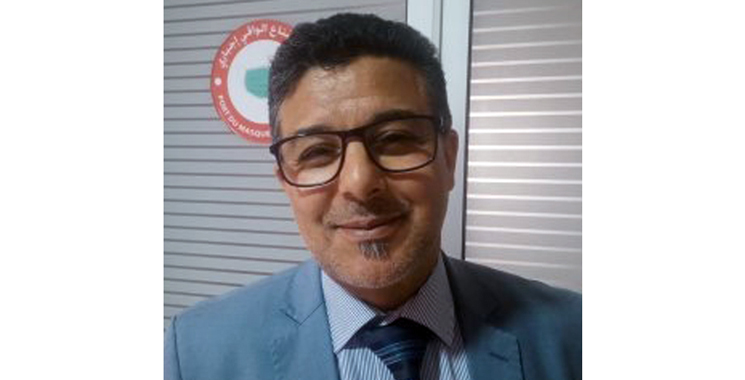The Taliban removed the Uighurs militants from the area near the border between Afghanistan and China, said sources in the region, in a move that analysts say signals a growing coordination between Beijing and the Afghan militant group, writes the editorial office Radio Free Europe (RSE) in English
Uighur fighters are believed to have been relocated within Afghanistan to members of the Turkic Islamic Party (TIP) – an Uighur extremist group blamed by Beijing for the unrest in its western province of Xinjiang and called by its former name, the Islamic Movement of East Turkistan (ETIM).
The Taliban allowed Uyghur groups to operate in Afghanistan during their rule in the 1990s and are believed to still have ties to them. China has demanded that the Taliban sever all ties with the militants.
Analysts say the Taliban move represents a new step in their ties with Beijing, the first time they have been Afghan militants have taken steps on the ground to allay China’s security fears since taking power in Afghanistan in August.
“This is what China wants and what the Taliban should provide if they want to encourage deeper cooperation with Beijing, “Bradley Jardine, an associate at the Wilson Center’s Kissinger Institute for China and the United States, told RFE / RL. “The real question is can I fully fulfill that.”
TIP militants were located in Badakshan, a province in northeastern Afghanistan along the 76-kilometer-long border with China, and have since been relocated to other areas, including the eastern province. Nangarhar, a former Afghan military official who has knowledge of the situation told RFE / RL.
Uighur militants were present in Badakhshan until last week, but have since Tajik border guard in the area told RFE / RL on October 4, citing intelligence reports.
It is unclear whether the Taliban will hand over fighters to Chinese authorities, he said. an official of the Tajik State Border Service who spoke to RSE on condition that he remain anonymous as he was not authorized to speak to the media.
Beijing and the Taliban
China has established a pragmatic and sometimes tense employment relationship over the decades with the Taliban focused on the fight against terrorism.
Prior to the fall of the Western-backed Afghan government, Beijing also had close working relations with Kabul, and Afghan forces helped in monitoring and targeting Uighur militant groups at China’s request.
Since the group took over Kabul on August 15, Beijing has taken steps to strengthen its relations with the Taliban, promising economic and development support in exchange for attention to China’s security problems, in particular by monitoring and denying asylum to any Uighur group in Afghanistan.
The new Taliban government has called China a close
Although the relocation of Uighur fighters is a notable step in the ties between Beijing and the Taliban, analysts warn that the group is still walking thin line in a growing partnership with China.
During the Taliban rule from 1996 to 2001, the group also relocated Uighur militants from border regions to other parts of Afghanistan. to allay Chinese concerns but not hand over fighters to Chinese authorities, which has strained ties between Beijing and the Taliban.
Andrew Small, Andrew Small, German Marshall Fund Fellow in Berlin, which monitors Chinese activities in South Asia, told RFE / RL that the Taliban may be trying to repeat that strategy.
“This is in line with what has happened when they were in power before, “Smol said. “The Taliban have tried to avoid embarrassment and China as a result of any activities by Uighur militants, but it would be a different matter to hand them over.”
Chinese fears
The Taliban claimed in September that Uighur militants do not operate in Afghanistan, but the relocation of fighters indicates their continued presence in that war-torn country.
The Chinese have long worried that Afghanistan will be a base for Uighur groups, which
During a July meeting in China with the Taliban, Chinese Foreign Minister Wang Yi called for the group to end any
China cited one of the most controversial policies of Chinese President Xi Jinping as fears of terrorism: a large system of internment camps that has closed more than million Uighurs, Kazakhs, Kyrgyz and others h of Muslim minorities.
Muslim ethnic minorities make up the majority of the population in Xinjiang, and the Chinese authorities have long doubted their loyalty. The vast area bordering Central Asia was the scene of terrorist attacks blamed on Beijing by the TIP and their predecessors, ETIM.
The fight against terrorism and concerns about radicalization were key in justifying the Chinese Communist Party for its suppression in Xinjiang and the creation of a network of camps, the leaked documents obtained by The New York Times in 2019 showed.
However, the full extent of the threat posed by Uighur militants is disputed, and many analysts say the groups lack the coordination and ability to carry out major attacks.
Washington is 2020. removed ETIM from its list of foreign terrorist groups, stressing that it believes “there is no credible” evidence that the group still exists.
However, a United Nations Security Council report from 2020, it is stated that several hundred Uighur fighters are believed to be in Afghanistan.
Beijing and U They are still recognized as a terrorist group.
Uighur Concerns
Increased coordination between the Taliban and China is likely to spread fear among the wider ethnic population of Uyghurs in Afghanistan.
Many Afghan Uighurs – it is estimated that there are more than 2,000 – are the second generation of Afghans whose parents left China decades ago.
As Beijing and the Taliban strengthen ties, many within the community fear they could be caught in the growing Chinese crackdown on Uighurs.
Beijing aimed to censor and intimidate Uighur activists and, in some cases, extradite them back to Xinjiang.
Four ethnic Uighurs from Afghanistan, who spoke for RSE on condition of anonymity for fear of retaliation Taliban, they said they feared they would be deported to China under the new Taliban regime.
Fears are further heightened by the fact that many of their Afghan ID cards, which RSE has seen, say “Uyghur” or “Refugee from China”, which makes them easier to separate.
Although there are still none An indication that the Taliban are planning to target the wider Uighur community in Afghanistan, the recipe for escalation remains, analysts warn.
“The danger with the Afghan situation is how easy it is to label Uyghurs as militants. when that’s not the case, ”Jardin said. “China has abused this label in the past, and if there is no established responsibility, it is difficult to know who the militant really is.”
Note: This article has been indexed to our site. We do not claim legitimacy, ownership or copyright of any of the content above. To see the article at original source Click Here














